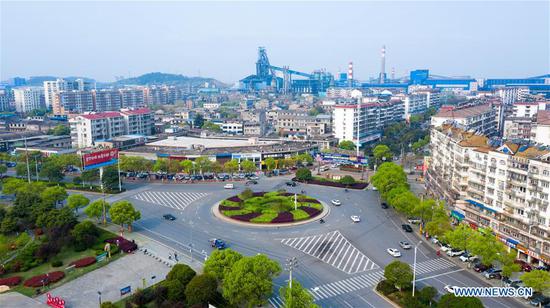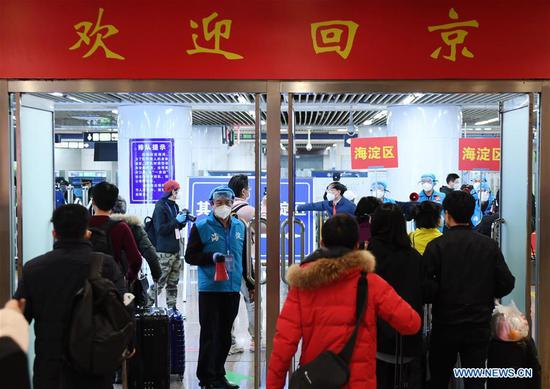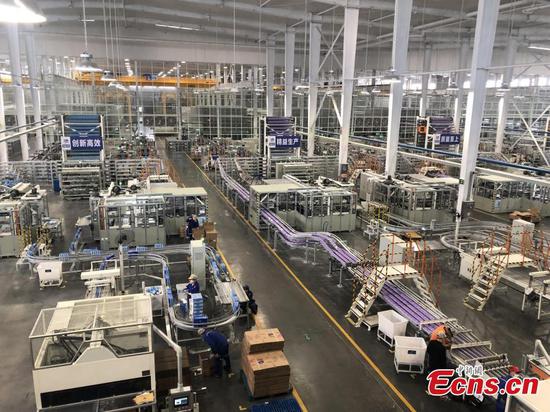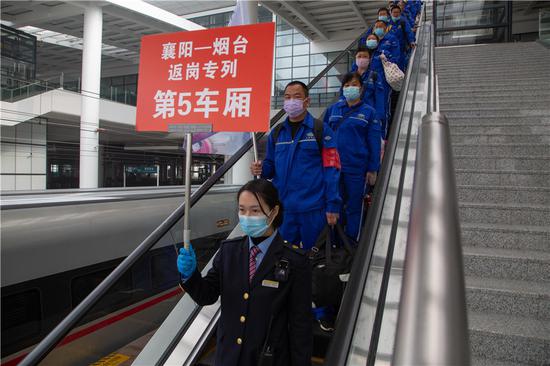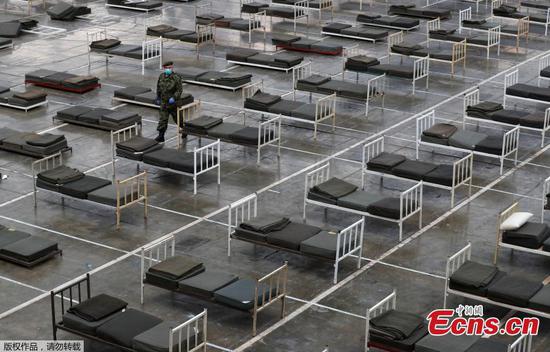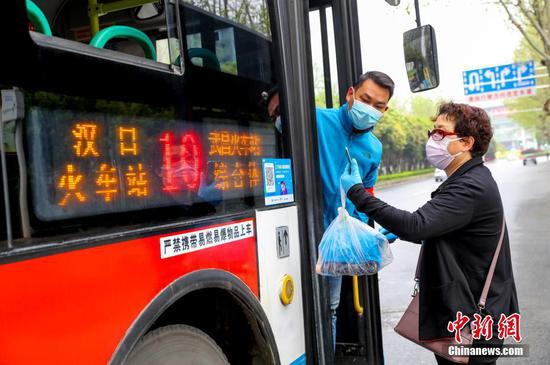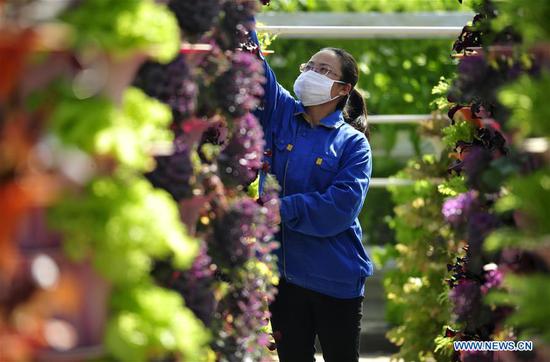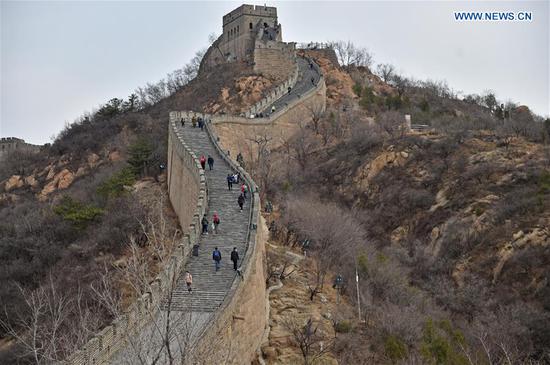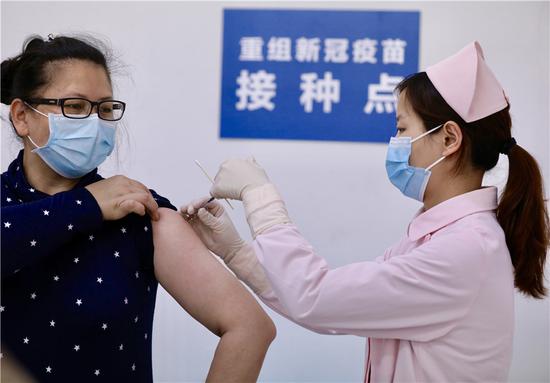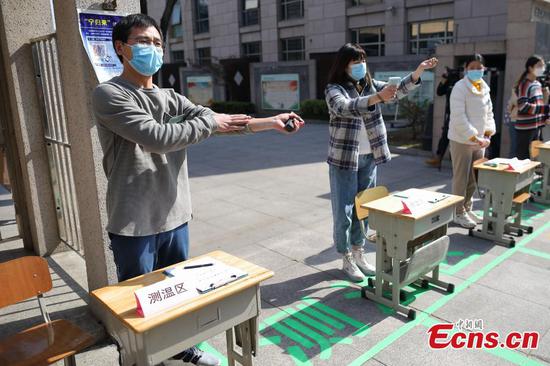
A broadcaster sells agricultural products online in Liaoning province in March, 2020. (Photo/Xinhua)
Online services
In addition to technology, online services and e-commerce platforms that sell agricultural materials are helping farmers beat the labor shortage.
To prevent large gatherings, agricultural experts are providing online lessons in which they demonstrate how to solve problems in production, raising animals and orchard management. The experts use a number of mobile broadcast platforms that allow farmers to watch demonstrations of agricultural technology, listen to interpretations of policy and ask questions from their homes.
Zhang Yuzhu, an agricultural technology instructor in Horqin Right Wing Middle Banner, Inner Mongolia autonomous region, has been providing such broadcasts for nearly a month.
When she gets home from work every day, Zhang presents a one-hour live broadcast on the Kuaishou platform and answers questions.
"It's time to start spring farming. In previous years, we would have arranged for technicians to go to the countryside to conduct technical training and give lectures to farmers. The epidemic means we can't provide large-scale training offline this year, so I decided to use the online broadcast, which is safe and convenient," she said.
So far, live broadcasts and WeChat groups hosted by more than 90 technical instructors have helped 540 households in the area prepare for the spring farming season.
Zhang Jinyi, who grows grain in Jiangxi province, was worried that he would have to delay plowing this year, because he was unable to buy materials at the market.
"In late February, I called several merchants to purchase fertilizer and seeds, but they told me the factories hadn't resumed production and they didn't have sufficient inventory. I was quite unsettled," said the 54-year-old, who farms 3 hectares of rice and rapeseed.
"Earlier this month, as the situation began to improve, I noticed that many factories were resuming production. I learned to purchase such materials online, and that made the preparation work much easier. After a few clicks, I had obtained enough chemical fertilizers and seeds."
On March 2, the leading group of the Communist Party of China Central Committee on the Prevention and Control of the Novel Coronavirus Outbreak issued a guideline on coordinating control measures and spring farming preparations to ensure production is stable.
The document required all provincial-level regions to keep their cultivated areas and grain output stable, with last year's registered harvest providing a benchmark. The regions were also ordered to implement support policies for farmers.
Renewal
As of Sunday, 88 percent of businesses that provide key agricultural materials were operating normally, while 90 percent of agricultural stores had reopened and 92 percent of rural roads nationwide were free of barriers, meaning supplies can reach regular levels, according to Xie Yan, an inspector with the Seed Management Department at the Ministry of Agriculture and Rural Affairs.
Less than 5 percent of the 1,200 agricultural counties nationwide have reported shortages of materials, Xie Yan said.
On March 5, Zhang Yanqiu, head of the department, told a media briefing in Beijing that in normal times, the supply of seeds, fertilizers and pesticides exceeds national demand during the spring farming period, but this year, the supply chain has been affected by the restricted cross-regional transportation as a result of the virus,
Meanwhile, on Sunday, Wang Xiuchun, deputy director of the Ministry of Transport's Service Department, said to ensure open transport channels for spring farming materials, the ministry has ordered authorities nationwide to exempt vehicles carrying agricultural produce and machinery from road tolls. Such vehicles are also allowed to use the "green channel", a fast lane for emergency traffic, while epidemic prevention and control measures remain in force.
The ministry has also established a Logistics Guarantee Office to oversee national demand for transportation 24 hours a day, undertake overall planning and dispatch key materials and workers to ensure the continuation of spring farming work, she added.











